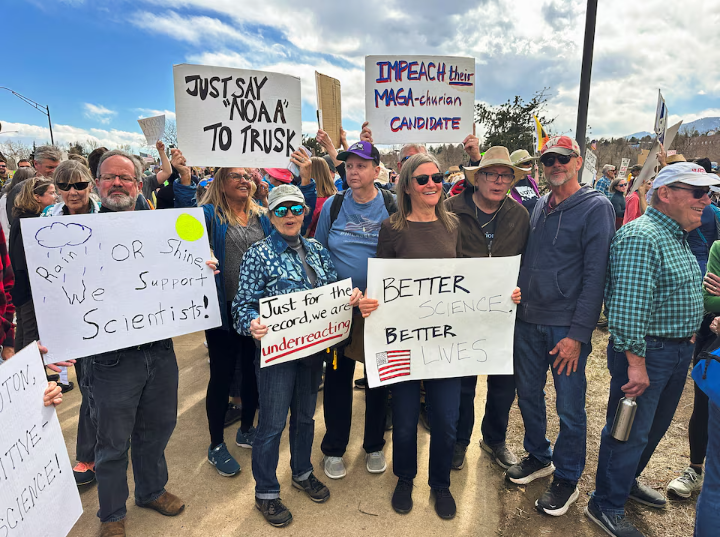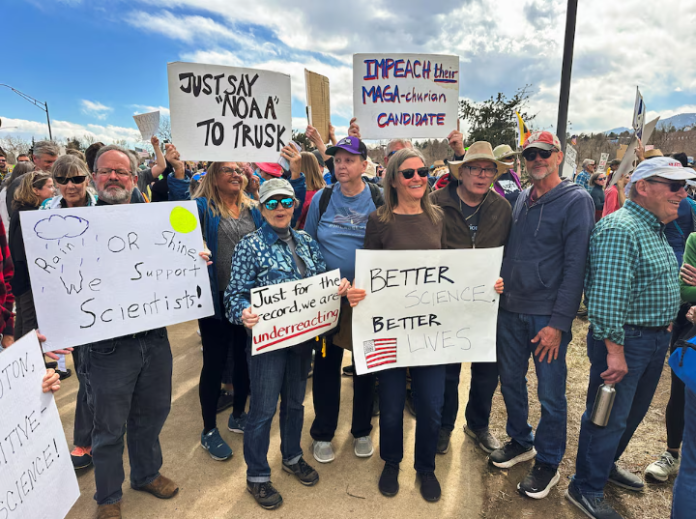More than 1,000 people gathered outside the National Oceanic and Atmospheric Administration (NOAA) building in Boulder, Colorado, on Monday, protesting the Trump administration’s decision to lay off a significant number of scientists. According to NOAA employees, the cuts amount to at least 10% of the agency’s workforce in Boulder, a move that has sparked nationwide outrage.
The demonstration was spearheaded by former U.S. Congressman David Skaggs, a Colorado Democrat, who expressed shock at the overwhelming turnout. “I expected maybe 100 people, but this shows the deep concern people have about these reckless cuts,” he said. Local police estimated the crowd at over 1,000.
Impact on Weather Forecasting and Public Safety
The layoffs have raised serious concerns about the future of NOAA’s operations, which play a critical role in weather forecasting, space weather predictions, and disaster preparedness. Scientists warn that these cuts could compromise the accuracy and timeliness of crucial alerts, including wildfire, tornado, and hurricane warnings.
“Losing experienced scientists like this puts the public at risk,” said one NOAA employee who requested anonymity for fear of retaliation. “These forecasts save lives. Reducing our capacity to predict extreme weather events could lead to catastrophic consequences.”
Retired NOAA manager Susan McLean, who also attended the protest, criticized the sudden nature of the layoffs. “In the past, government downsizing was done carefully, with input from agency leaders. This time, it’s like using a wrecking ball—indiscriminate and reckless,” she said.
A Bipartisan Concern?
While NOAA is a scientific agency, protesters emphasized that maintaining its workforce should not be a partisan issue. Brenna Raeder, one of the demonstrators, held a sign reading, “National Weather Service Saves Lives.” She called the cuts “insane,” pointing out that Colorado, in particular, relies on NOAA’s wildfire forecasting services.

The Trump administration has justified the layoffs as part of broader efforts to reduce government spending. However, some conservative policy groups, including Project 2025, have advocated for downsizing NOAA, claiming that it has become a “driver of climate change alarmism” and a threat to U.S. economic growth.
In addition to the protest in Boulder, another demonstration took place at NOAA’s facility in Silver Spring, Maryland, where 1,000 more people called for the reinstatement of fired scientists. “NOAA is essential for everything from seafood safety to hurricane tracking. Gutting it is a national security risk,” said demonstrator Mike Tidwell.
As public outrage grows, the NOAA layoffs are becoming a flashpoint in the broader debate about the role of science in government decision-making. The question now is whether lawmakers will take action to protect one of the country’s most vital scientific institutions.



